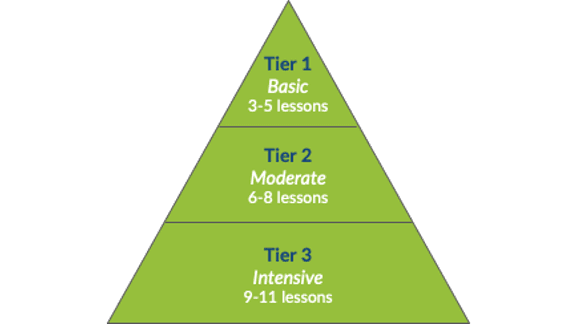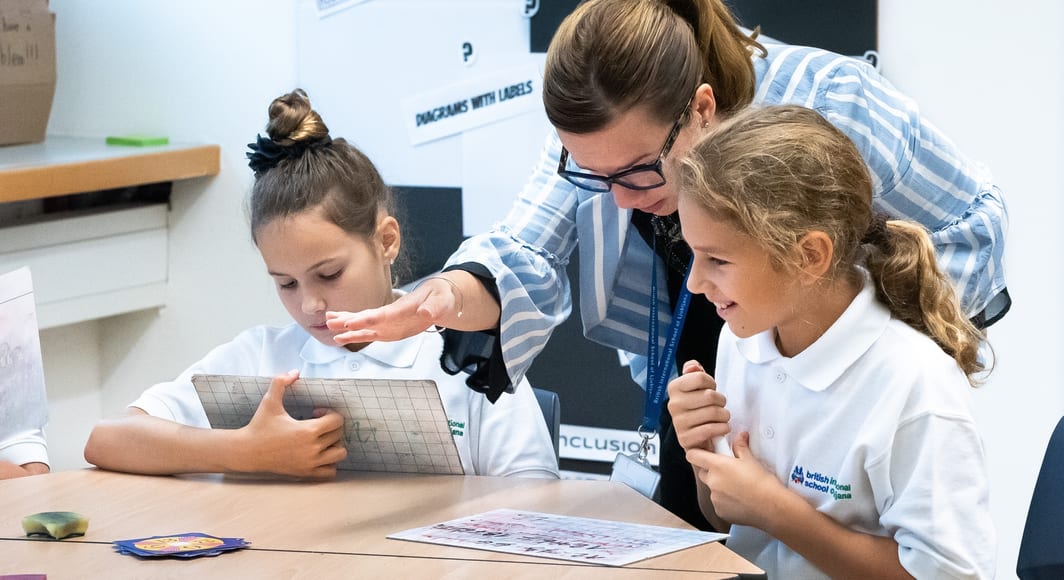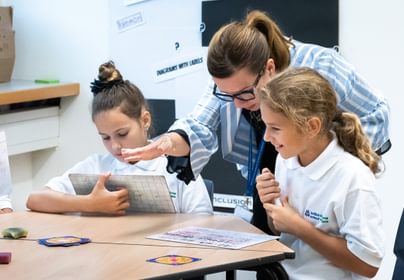As an international school with students from over 40 different nationalities, most of whom speak at least two or more languages, and over 90% of them have English as their second or even third language, the quality of English language provision at BISL is of crucial importance.
Our exemplary English as an Additional Language (EAL) provision can only be achieved through outstanding organisation, curriculum planning, schemes of work and lesson plans from our team of fantastic teachers. As part of our whole-school English language provision, the 3-tiered EAL programme at BISL has been set up to help new students integrate into the school’s social and academic life as quickly and smoothly as possible.

ALFRIAccreditation ReportThe level of EAL support offered to each individual pupil using EAL depends on their specific learning needs. Pupils are placed into EAL groups in one of three tiers and are grouped by Key Stages. This ensures the provision of appropriate support, both in terms of age appropriacy and of level and intensity of support.
However, providing appropriate EAL support to all our students is a collective effort that goes above and beyond the scope of the EAL programme itself. As discussed in one of our recent articles about our exemplary EAL provision, all our teachers are EAL trained through on-site Continuing Professional Development (CPD) opportunities and online courses. This training ties in with our Curriculum Plans, Schemes of Work and Lesson plans.
ALFRIAccreditation ReportIn addition to EAL specialist lessons, pupils receive targeted support in mainstream lessons.
Research shows (Strand & Hessel, 2018) that no matter what subject we are talking about, students’ attainment increases with greater English proficiency, indicating a strong link between proficiency in English and academic achievement.
That is why, at BISL, we incorporate our consideration of EAL students in all aspects of our school, from Early Years all the way up to Sixth Form.
Following the English National Curriculum, our Curriculum Plans are organised as Whole School Themes, designed to bring our Primary and Secondary curricula together, with students taking part in joint activities, challenges and competitions. There are over 116 Curriculum Plans, readily available on our website, showing long-term planning of every Key Stage, year group and subject across the school. This is a very useful tool for students, teachers and parents alike.

Linked to every Curriculum Plan is a detailed medium-term Scheme of Work put together by our teachers. Schemes of Work are documents outlining all the learning to be covered over a certain period of time, usually a Block or a Term. They provide teachers with a chance to consider how they want to teach a certain topic and what resources they are going to use. At BISL, each Scheme of Work includes a dedicated section for EAL, Gifted & Talented, Differentiation, Questioning and Challengetechniques or strategies.
Further evidence provided shows careful and explicit integration of content and language teaching both in schemes of work and lesson plans for mainstream classes, which demonstrates teachers' understanding of effective EAL strategies and their role in supporting pupils using EAL.
From the Schemes of Work and the accompanying strategies, our teachers can then make lesson plans for individual lessons, even further developing particular learning objectives and success criteria, and considering how to achieve the best academic progress possible for our students. This process ensures the integration of language development as well as the deliberate language support in all fields, across all subjects and at all times here at BISL.
Only such a well-organised whole-school planning approach, meticulous curriculum building and integration of all students can guarantee outstanding results, which we will discuss at greater lengths in a future article, as well as our exemplary English provision.
The evidence suggests that support for pupils using EAL is effective and that the needs of all learners - and not just of those who are new to English or at at the early stages of language acquisition - are met.




